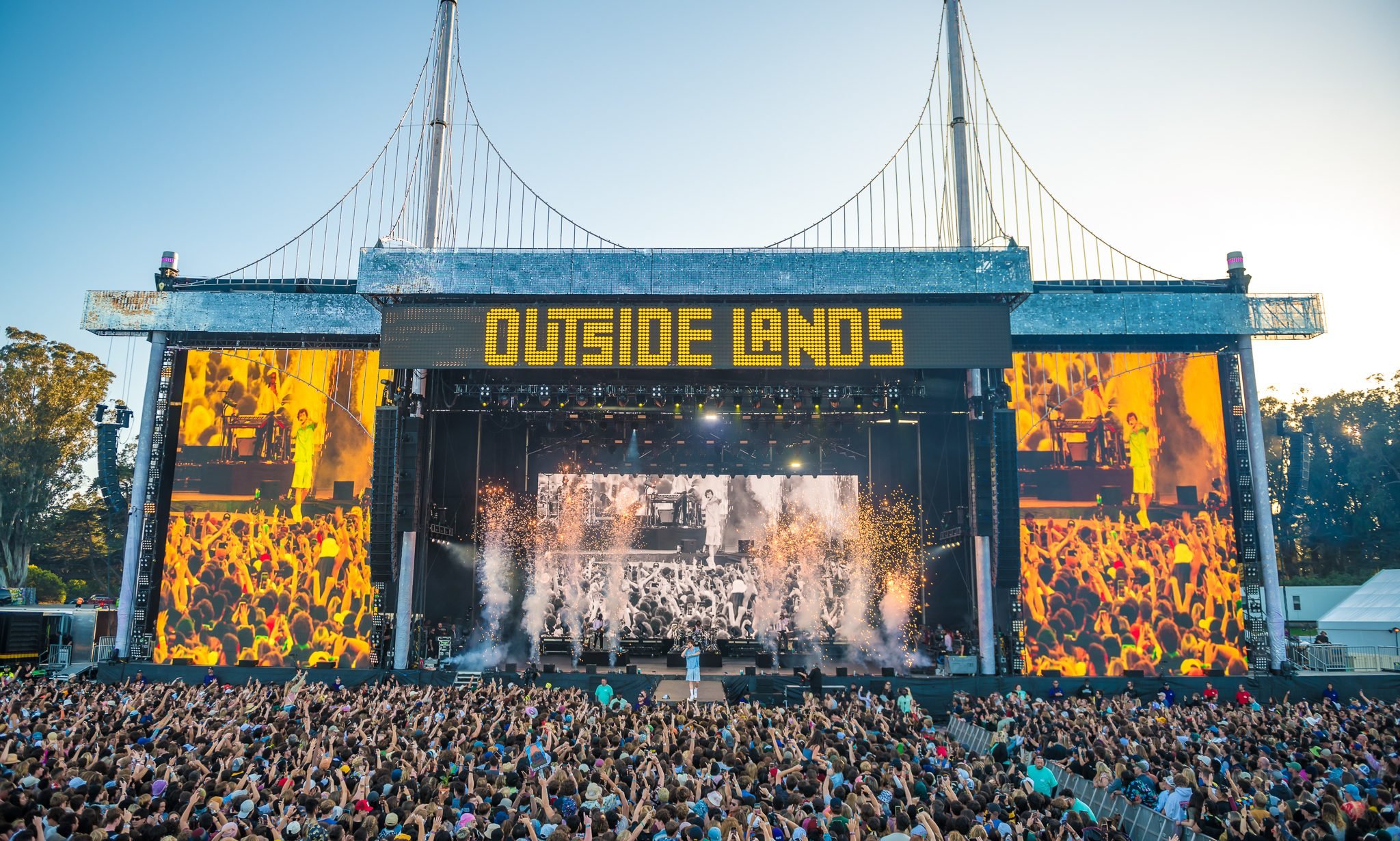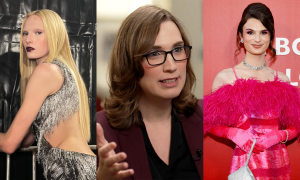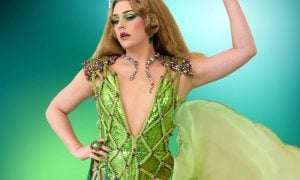With festival season rapidly approaching, music fans are eagerly awaiting the arrival of one of San Francisco’s most highly anticipated events — Outside Lands. This year’s festival, which will take place in Golden Gate Park from August 8 to August 10, is shaping up to be an exciting and inclusive experience. While major headliners like Tyler, The Creator, Hozier, and Doja Cat will headline the event, it’s the representation of queer artists on the lineup that is generating a lot of buzz. From Grammy-winning rappers to indie rockers, this year’s festival is celebrating a diverse range of queer voices in music.
Doechii: A Bisexual Icon in Hip-Hop

Doechii Performing at the 2025 Grammy’s. Photo: CBS
Doechii, who identifies as bisexual, has rapidly risen to fame within the music industry. Known for her unique style and genre-blending sound, Doechii’s unapologetic embrace of her bisexuality has made her an important figure for the LGBTQ+ community, particularly for bisexual visibility. The Top Dawg Entertainment signee made headlines in 2022 when she came out in a candid interview with GQ, and she’s been open about her experiences with love and sexuality ever since.
Her bold stance on fluidity in sexuality is evident in her interviews, where she often stresses the importance of being upfront and honest with partners about one’s sexual orientation. As she explained in a 2022 Breakfast Club interview, “Let me know what it is up front. I’ll accept you for who you are. It doesn’t really matter.” Doechii’s music continues to break boundaries, offering a space for queer fans to see their experiences reflected in her art.
Rebecca Black: From Viral Star to Queer Role Model

Rebecca Black at Portola in 2024. Photo: Instagram/@msrebeccablack
Rebecca Black, best known for her viral hit “Friday,” has been on a journey of self-discovery and growth in the public eye. In 2020, she publicly came out as queer on the Dating Straight podcast, explaining that her shift in perspective was more about her personal comfort than the need for a big “coming out” moment. She describes herself as “queer,” noting that the term resonates with her as it encompasses the fluidity of her sexuality.
As an artist who has navigated both the pressures of fame and her identity, Black’s journey has inspired many fans. Her visibility is especially important in the context of LGBTQ+ representation in mainstream pop music, as her openness has helped normalize queer identities in the music industry. Rebecca Black continues to push boundaries with her artistry, bringing her authentic self to the stage while encouraging others to embrace their true selves.
TORRES: Exploring Non-Binary Identity in Music
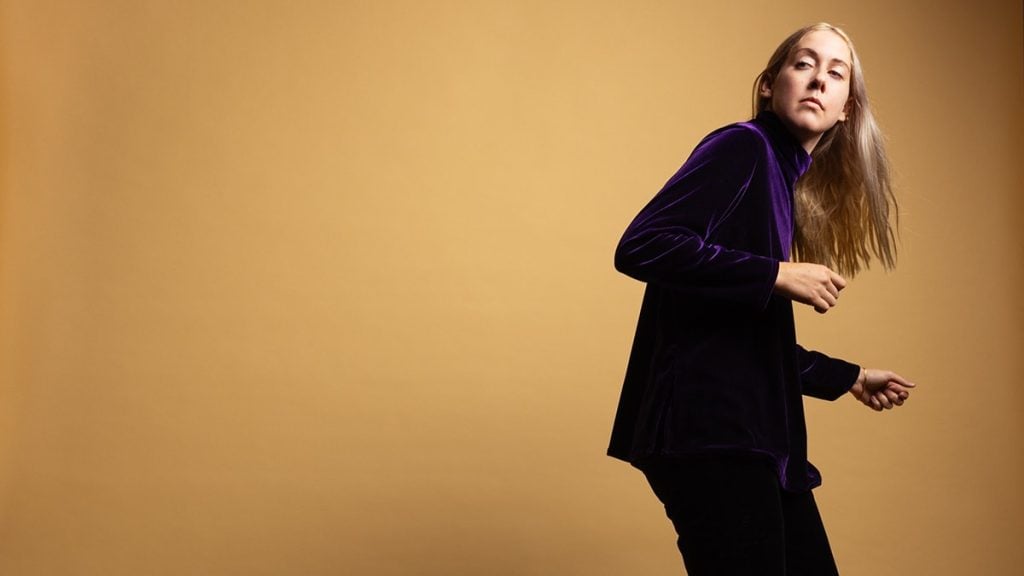
Photo: Mia Hughes
TORRES, the stage name of Mackenzie Scott, is an indie rock musician who identifies as queer and non-binary. Their music is deeply personal, often reflecting their struggles with identity, relationships, and the passing of time. TORRES made waves in 2021 when they publicly came out as non-binary, expanding the scope of LGBTQ+ representation in rock music. Their powerful album Silver Tongue is a testament to their journey, exploring themes of love, vulnerability, and the intersection of gender and identity.
TORRES’s marriage to visual artist Jenna Gribbon further highlights the queer visibility in their life and work. As an artist, TORRES has become a beacon for non-binary individuals in music, offering a voice to those whose experiences are often overlooked. Their work remains a strong example of the intersection between art and queer identity, continuing to inspire fans around the world.
Julien Baker: A Lesbian Voice in Indie Rock
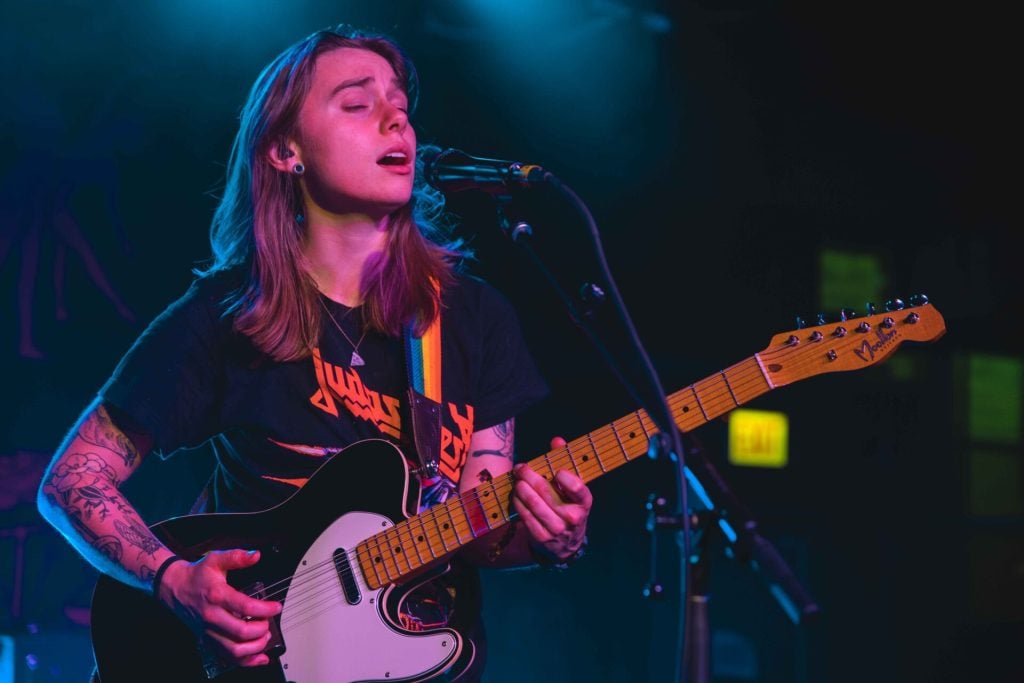
Photo: Substream Magazine
Julien Baker has been a key figure in the indie rock scene for years, known for her poignant lyrics and emotionally charged performances. As an openly lesbian artist, her music often touches on themes of faith, sexuality, and mental health. Baker’s coming out story is one of courage, as she shared her truth with her parents at the age of 17, after years of living in fear of rejection. Thankfully, her family was “radically accepting,” and she has since used her platform to advocate for LGBTQ+ rights and inclusivity.
Baker’s work, including her albums Sprained Ankle and Turn Out the Lights, has resonated deeply with LGBTQ+ listeners, particularly those who have experienced similar struggles with organized religion and family acceptance. Her raw and heartfelt music is a testament to the power of authenticity in a sometimes harsh world.
Big Freedia: The Queen of Bounce Music and LGBTQ+ Representation

Big Freedia Live with the Louisiana Philharmonic Orchestra. Photo: YouTube
Big Freedia, known as the “Queen of Bounce,” has become a symbol of queer empowerment within the music world. As a gay man who embraces his feminine side, Big Freedia is a force of nature, blending his gender-nonconforming identity with his infectious music style. He is a trailblazer in the bounce music scene, a subgenre of hip-hop that originated in New Orleans. Big Freedia’s rise to fame has made her one of the most visible queer artists in mainstream music.
Freedia has always been open about his identity and has used his platform to speak out against homophobia in the industry. Despite facing challenges early in his career, he’s remained steadfast in breaking down barriers for LGBTQ+ artists. His music is not only a celebration of New Orleans culture but also of queer identity, offering a space for queer people to feel seen, heard, and empowered.
Hope Tala: Queer Representation in R&B
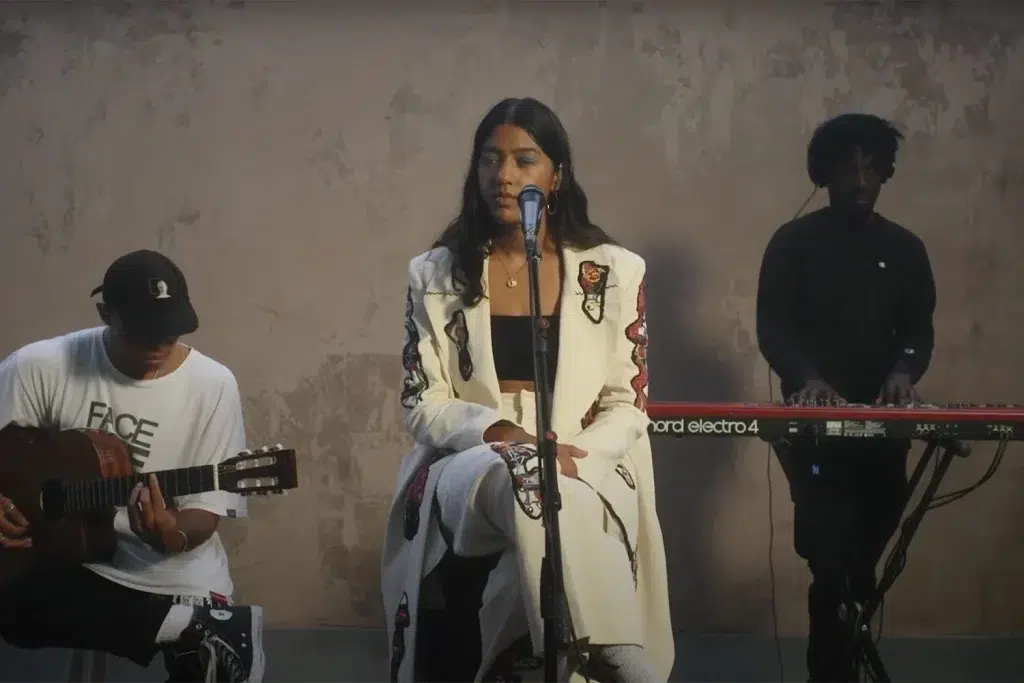
Hope Tala Performing ‘Crazy’ Live. Photo: Vevo
Hope Tala has quickly become an important figure in the new wave of queer artists in the music industry. In an interview with Gay Times, Tala spoke about the natural progression of her visibility as a queer artist, noting that her platform allows her to connect with diverse audiences, particularly within the LGBTQ+ community. Tala identifies as queer and proudly represents her experiences in her music, often discussing love, self-expression, and the complexities of modern relationships.
Her rise in the music industry is particularly significant for LGBTQ+ people of color, a group that has historically been underrepresented in mainstream music. Tala’s openness about her sexuality and the way she weaves it into her music offers a refreshing and much-needed perspective in contemporary R&B.
Tyler, The Creator: Speculation and Curiosity Around Queerness
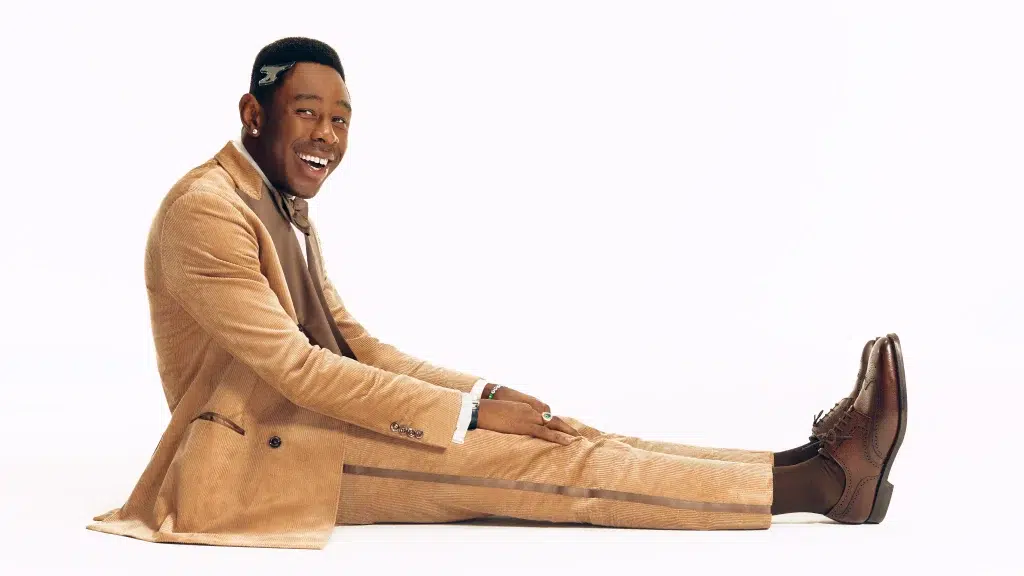
Photo: Casper Kofi for GQ
Tyler, The Creator is one of the most enigmatic figures in modern music. While he has never explicitly labeled his sexuality, his music has long hinted at fluidity in his attractions, with lyrics referencing relationships with both men and women. Songs like “Sorry Not Sorry” and “Balloon” have sparked conversations about his sexual identity, with Tyler describing his sexuality as a “grey area.”
Tyler’s openness about his sexual exploration has made him a queer icon in the hip-hop community, a genre that has traditionally been less accepting of LGBTQ+ voices. His willingness to challenge norms and explore his identity through his music has made him a role model for queer fans within the hip-hop scene.
Conclusion: A Festival for All
Outside Lands 2025 promises to be a celebration of queer voices in music, with a lineup that features a diverse range of artists from various genres. From Doechii’s bold bisexual representation to Big Freedia’s unapologetic queer power, this year’s festival lineup is sure to be a momentous occasion for LGBTQ+ fans and allies alike. With acts like Julien Baker, TORRES, and Hope Tala paving the way for future generations of queer musicians, Outside Lands is proving to be not just a music festival but a space for inclusivity, visibility, and celebration of diverse identities.
Fans can look forward to a weekend of unforgettable performances, powerful stories, and a celebration of queer culture at Golden Gate Park this summer. Explore the full lineup at the Outside Lands website.

